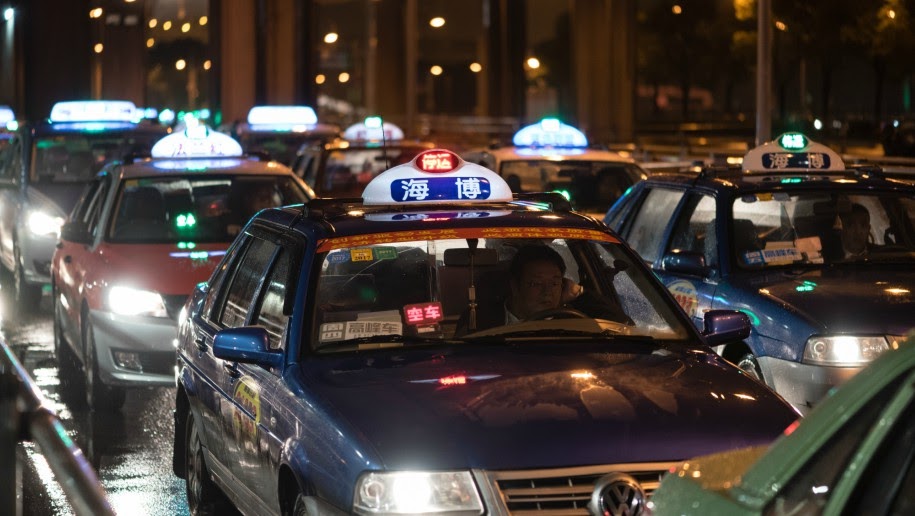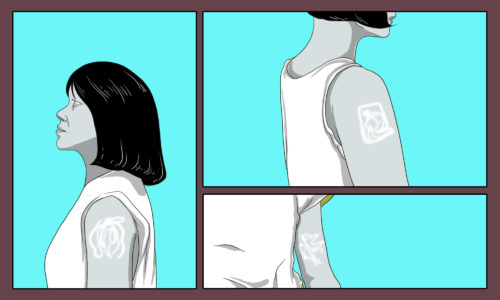Lanzhou adopts no-visible-ink policy for taxi drivers, prompting debate over tattoos in the workplace
The decision has been met with mixed reactions from the public, with some denouncing the ban on tattoos as a form of discrimination in the workplace, and others applauding it for protecting the interest of passengers.

As part of a citywide initiative to strengthen industrial regulations for employees in the transportation sector, authorities in Lanzhou, Gansu Province, have introduced a policy requiring tattooed taxi drivers to remove visible ink on their bodies. The decision has been met with mixed reactions from the public, with some denouncing the ban on tattoos as a form of discrimination in the workplace, and others applauding it for protecting the interest of passengers.
The issue came into the spotlight over the weekend when a taxi driver in Lanzhou filed a complaint with the local government in an online post, in which he voiced his objection to the new policy. “I truly don’t want to feel discrimination at work. Not all tattooed individuals are troublemakers,” he wrote.
“I’ve undergone a criminal background check upon employment, assuring my company that I’m a law-abiding citizen. Having ink on my skin doesn’t mean I’m a bad person,” the driver stated, adding that while he offered to cover up his ink, his employer still asked him to go through the painful and time-consuming process of removing his tattoos.
To drive his point home, the person also raised the example of Yuè Fēi 岳飞, one of China’s most celebrated ancient generals, who famously had a tattoo on his back that read: “Serve the country with utmost loyalty” (精忠报国 jīngzhōng bàoguó).
The driver’s grievance quickly gained traction on the Chinese internet, with many people calling the no-tattoo policy an attack on self-expression and demanding local officials explain the reasoning behind the decision.
In response to the controversy, the Transportation Commission in Lanzhou told The Paper (in Chinese) that the ban was in line with relevant regulations issued by the city’s taxi association, which required drivers with “visible” and “prominent” body art to keep their tattoos under cover. But the new policy takes these restrictions a step further, ordering drivers to “make utmost efforts” to remove their tattoos for good. Those who are unable to take immediate action are told to hide skin art while at work.
According to the commission, the directive was made in the interest of passengers because as workers in a customer-facing industry, taxi drivers showing “extensive” body art might make passengers, particularly women and children, feel uncomfortable.
Following the official explanation, Chinese internet users took to social media with mixed opinions — some saying that the no-tattoo rule was workplace discrimination, while others expressed their full support. “Speaking for myself, as a woman, I have no problem with taxi drivers having tattoos as long as they don’t depict things like nudity or bad language,” one Weibo user wrote (in Chinese), while another penned, “It’s time to overcome the negative stigma associated with visible markings.” Some people argued that there is a time and a place for tattoos, and that the policy was reasonable because some passengers may be put off by body art. “The rule isn’t necessarily out of step with social attitudes about tattoos. When you work in the service industry, you can’t risk scaring people off,” a Weibo user wrote (in Chinese).
Once uncommon, tattoos have become much more a part of mainstream culture in China over the past decade, especially among the younger generation and people working in certain areas, such as sports and entertainment. But in the meantime, many people still hold negative views on the subject, associating body art with criminality and rebels on society’s fringes.
This critical attitude toward tattoos is widely shared among Chinese government officials, who have rolled out a few policies over the years prohibiting public figures from showing their tattoos on television, citing reasons pertaining to ideological and cultural education. For example, in 2018, when a string of tattooed hip-hop artists rose to prominence, Chinese censors ordered all TV shows to stop inviting entertainers with visible ink on their bodies. The ruling later spread to the field of football, where players were told by Chinese sports officials to wear long sleeves to cover their tattoos.






